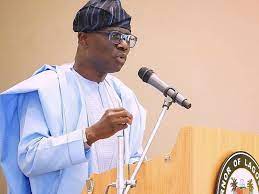
As President Bola Tinubu prepares to present the 2025 national budget to Nigeria’s National Assembly on Tuesday, the Nigerian Government (FG) is poised to surpass its domestic borrowing target for 2024 by a staggering N4 trillion , a 67% overrun. This increase, compounded by persistent concerns over the country’s growing debt stock, has triggered further debate on the sustainability of Nigeria’s fiscal policy.
According to the latest financial data, the FG’s domestic borrowing for the 11 months through November 2024 has already exceeded N8.93 trillion, surpassing the planned target of N6 trillion. With borrowing activities still underway, the government is on track to borrow up to N10 trillion by the end of the year 67% more than initially projected.
The government’s mounting borrowing is set against the backdrop of an ambitious plan to finance the 2025 budget, which is expected to include a deficit of N9.22 trillion. This would be financed through both domestic and foreign borrowings, with domestic debt accounting for the bulk of the funding. The total borrowing target for 2025 is 18% higher than that of 2024, highlighting a continued reliance on debt to bridge the widening fiscal gap.
In the first half of 2024, the FG’s domestic debt stock rose sharply to N66.96 trillion, reflecting a 38.6% increase compared to the same period in 2023. Key borrowing instruments, such as Nigeria Treasury Bills (NTBs), FGN Bonds, and Sukuk Bonds, have played a significant role in the government’s debt accumulation. For instance, the FG raised N2.134 trillion in the third quarter of 2024 alone, primarily through NTBs and bonds.
The Rising Cost of Borrowing
The rapid expansion of government borrowing comes amid a high-interest-rate environment, driven by the Central Bank of Nigeria’s (CBN) aggressive monetary tightening. The Monetary Policy Rate (MPR) has increased by 875 basis points this year, pushing interest rates on short-term debt instruments like NTBs to nearly 23%. The higher interest rates have attracted domestic investors to government securities, providing the FG with a relatively stable source of funds, but also increasing the cost of borrowing.
Inflation and the Impact on Private Sector Growth
The rising domestic borrowing has contributed to inflationary pressures, as the cost of borrowing increases for both the public and private sectors. This has forced businesses to raise prices to cope with higher borrowing costs, further exacerbating inflation. In turn, the high-interest-rate regime, while aimed at controlling inflation, has put additional strain on the broader economy.
As Nigeria grapples with its mounting debt, it remains to be seen how the government plans to balance its borrowing activities with economic growth initiatives.
The 2025 budget, expected to be presented by President Tinubu, will likely outline the next steps in this complex fiscal situation, as the government seeks to address its deficit while managing the risks posed by rising debt and inflation.





